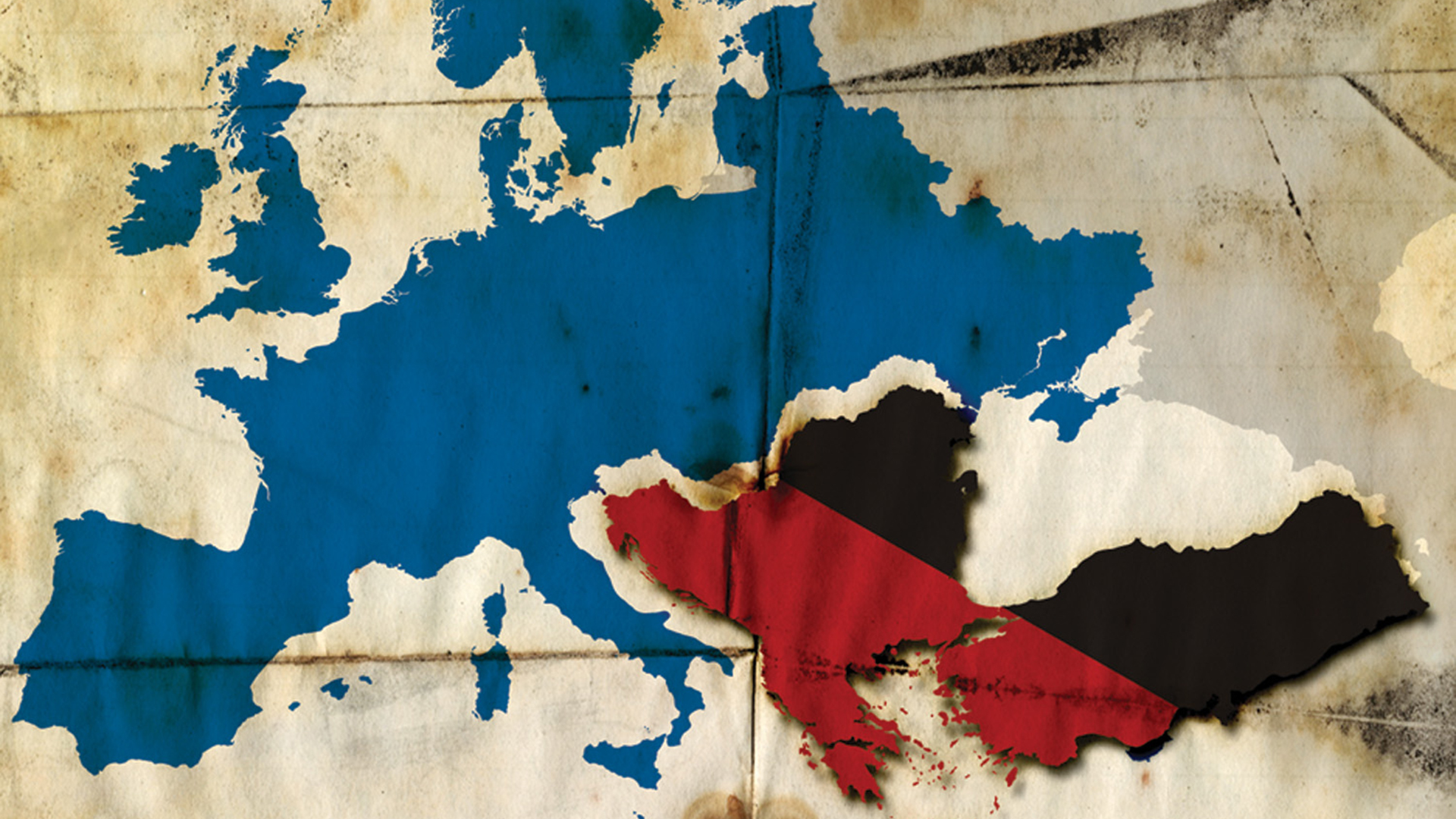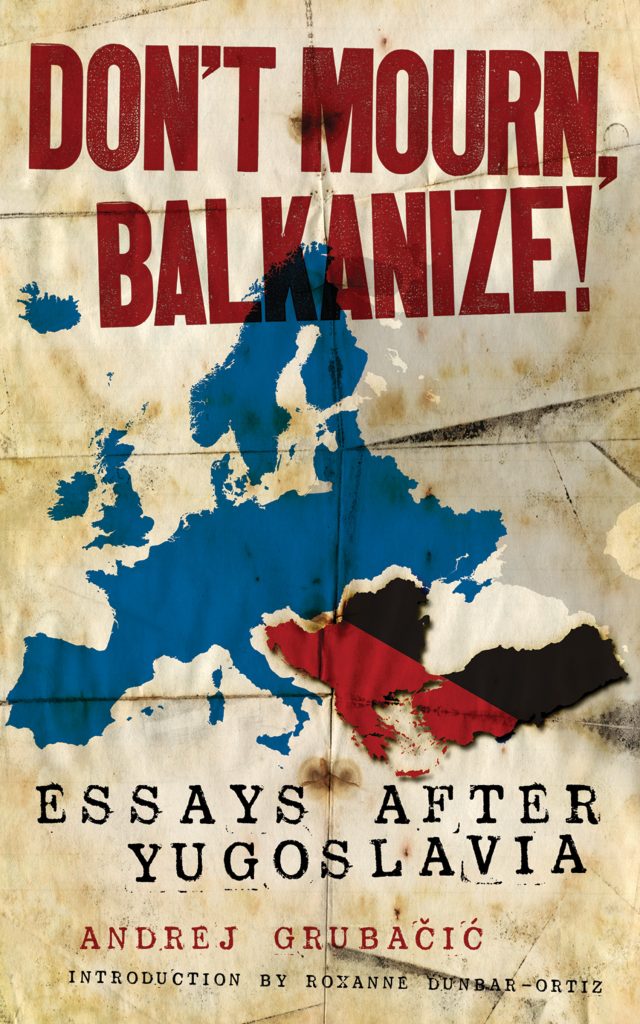By Deric Shannon
Znet
February 07, 2011
The term “balkanization” is typically used to refer to fragmentation, disunity—a breaking down into bickering sects. One might speak of the balkanization of a given group of voters, for example, as politicos analyze the behavior of voting blocs that fragment into separate interest groups. What often gets lost in these references are the racist and colonialist connotations of the word—centered on the historical experience of people in the Balkans.
The common narrative of the Balkans is one of typical colonial civilizing rhetoric. We’re told that “ancient ethnic hatreds” abound in the region that prevent these “brutal savages” from forming the alliances that paternalist colonial powers in the EU and USA would like to see emerge—exhibiting “(t)he essence of good society” such as “free market and pluralistic democracy” (127). In his essays in this collection, Grubacic mines through speeches and writings by politicians and media darlings as they use this essentializing and colonial rhetoric to justify interventionism and their attempts to force a “balkanization from above”, as Grubacic terms it.
And he offers an alternative narrative, as well as an alternative to the balkanization from above forced onto the region. Rather than situating the Balkans as a place marked by ethnic strife in need of colonizing and civilizing, Grubacic traces a different history of the Balkans. Rather, he notes a “decentralized and fragmented world of anti-colonial struggles; heretics (bogumili); maritime and land pirates (hajduci and uskoci); rebels and revolutionaries; anti-authoritarians; Romanis; self-governed communities; socialist federations; partisans; and antifascists” (126). Indeed, for Grubacic, “Balkanization is…about fragmentation, but it is not (only) ethnic fragmentation: Balkanization implies resistance and a decentralized and federated alternative to the violent centralization of states and empires” (126). In this, he avoids the nationalist trap while extending his vision for this “balkanization from below” to the rest of Europe: “Together with the Yugoslav avant-garde artist Ljubomir Micic, I believe in the need of the ‘Balkanization of Europe’” (130).
This book is basically a collection of essays and interviews from a participant of this process of “Balkanization from below” and Grubacic, a historian, sociologist, and organizer advocates throughout for this fundamentally anarchist position. Spelled out directly, he argues for “a politics of a Balkan Federation: a participatory society built from the bottom up through struggles for the creation of an inclusive democratic awareness, participatory social experiments, and an emancipatory practice that would win the political imagination of all people in the region. It is a politics that says unequivocally to the European Union and its state-architects in Bosnia and Kosovo: get the hell out of here!” (131).
This is perhaps one of the most interesting narratives running throughout the book—the one that takes place between the civilized world and its unruly and unrule-able uncivilized resisters. Not only are the terms laced with racist essentialism and colonial paternalism, but it provides an uncivilized subject position from which to resist this forced process from above. Like Gabriel Kuhn writes about in his history of piracy[1], this uncivilized subject position and the embracing of values contrary to those bound up with colonialist and hierarchical ways of life have tremendous radical potential. Grubacic incorporates this as he eviscerates the politicians and policy-makers that would force their version of “The Good Society” on his home, even while playfully juxtaposing “Balkan primitivism” with the suggested “European future” peddled by the EU’s political class (111).
I don’t want to overstate the book’s focus on this particular problematic, however, as it has a wide variety of analyses and stories to tell. Some of the best essays are when Grubacic provides his alternative to dominant narratives in US and European media. These include questions like “Should Milosevic be tried at the Hague?” (47); writings about what’s come to be called “New Europe” (e.g. 85); and sobering discussions about “(t)the torture of prisoners arrested in the ‘black sites’ of Eastern Europe. Torture in the name of democracy” (139); as well as a section that details pieces of his vision for a “Balkanization from below”.
Despite my enthusiasm for the book, I do have two minor quibbles with the contents.
First, in the section where Grubacic is making suggestions for possible visions of this balkanization from below, Michael Albert, one of the developers of participatory economics (parecon), interviews him. Grubacic states, “I do not see myself as a pareconist” and that “we need as many utopian proposals as we can come up with. Fragmentation of knowledge, or—why not—balkanization of knowledge, can help us discover many parts and building blocks for new revolutionary synthesis” (161). To be honest, I absolutely love this approach and it can serve as an important corrective to Correct Line-ism and sectarian politics. And Grubacic does an excellent job mining through interesting contributions from parecon such as its three-class analysis; its distrust of society’s coordinators and bureaucracy (put forward also in many ways by Bakunin); its criticisms of market socialism, etc.
But when Albert asks if there is opposition to parecon’s suggestion that we have norms of remuneration based on effort and sacrifice, Grubacic suggests that the only people who have problems with this are “’anticapitalist’ intellectuals” (complete with scare quotes) and his “colleagues who teach” (176). I would have liked to see a developed discussion on this particular proposal from parecon. I don’t put forward this criticism because I have a detailed position on norms of remuneration (I suppose I’m an agnostic on the question), but because there is a history of hostility among some anarchists—particularly anarcho-communists—to remuneration in a post-capitalist society. From Malatesta, to Kropotkin, to Cafiero, some anarchist revolutionaries have historically taken issue with this idea (which was likewise put forward in Bakunin’s collectivism). It is a personal obsession of mine—a desire to see this discussion through (mostly due to the unproductive nature of the “debates” I’ve seen on it—typically centered on questions of whether or not remunerative norms are “properly communist” and such), however, and I doubt it would detract from the quality of the book from most people’s perspective.
Finally, this narrative that runs throughout about “Balkanization from below” and the practical and theoretical contributions of this narrative would be an appropriate topic for an entire book. What we have here are often disconnected essays and interviews—all valuable contributions and recommended. But I would like to see “Balkanization from below” and what we might learn from this developed into a book of its own. Grubacic touches on subjects throughout—the struggle between the “civilized” and “uncivilized”; racist and colonial paternalism; the realities (and dangers) of organizing in an area that has been the focus of Euro-American interventionism—that deserve a booklength analysis in their own right. And what better person to pen this than Grubacic?
When reviewing books, it’s common practice to either recommend that one’s readers examine a given tome or reject it and not waste their time. I wholeheartedly recommend this book. As an American with only a passing knowledge of the history of the Balkans, the essays and interviews provided analyses that taught me important history lessons and tied them to a radical analysis of the political situation there on the ground. This is an important contribution both for the lessons we can take from it historically and because Grubacic’s political insights are invaluable.







